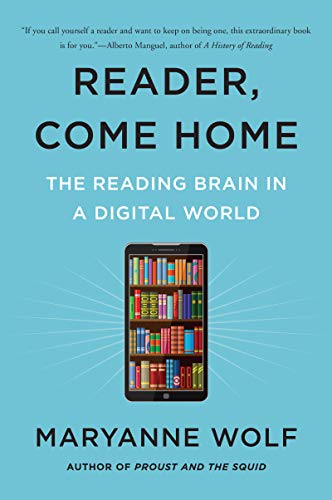Reader, Come Home: The Reading Brain in a Digital World Link to heading
Summary: Link to heading
“Reader, Come Home: The Reading Brain in a Digital World” by Maryanne Wolf explores the neurobiological processes involved in reading and how these are being altered by digital technology. The book discusses how the shift from a print-based culture to a digitally-dominated world impacts our reading habits, cognitive development, and deep thinking. Wolf raises concerns about the decline in critical thinking skills and empathy that may result from the superficial nature of digital reading. Through a series of letters to the reader, she reflects on the future of reading and literacy.
Review: Link to heading
Maryanne Wolf’s “Reader, Come Home” is a compelling and thought-provoking examination of the changing landscape of literacy. The book is impactful in its thorough investigation into how digital media affects the reading brain and cognitive processes. A major strength lies in Wolf’s ability to communicate complex neuroscientific concepts in an accessible manner, making it valuable for both experts and general readers interested in literacy and technology. However, some readers might find her writing style, which is structured as a series of letters, to be unconventional. Additionally, certain sections might come across as repetitive in stressing the importance of deep reading skills.
Key Takeaways: Link to heading
- Digital media is reshaping the way we read and process information, potentially affecting empathy and critical thinking.
- Print reading encourages deep reading, allowing for better comprehension and analysis, which are crucial for critical thinking.
- The necessity of developing a “biliterate” brain that can navigate both the digital and print environments effectively.
- Importance of teaching children robust reading skills that emphasize deep reading and comprehension.
- Awareness of one’s own reading habits can lead to more intentional engagement with texts.
Recommendation: Link to heading
“Reader, Come Home” is recommended for educators, parents, psychologists, and anyone interested in the intersection of technology, literacy, and cognitive science. This book is particularly beneficial for those concerned about the future of reading and literacy in the digital age and who wish to foster deeper reading habits in themselves and others.
